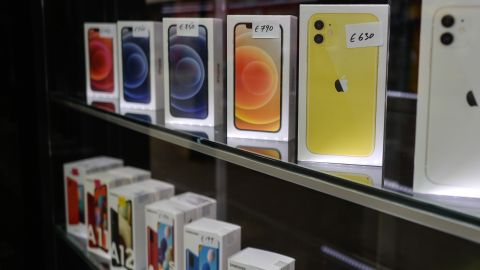An adviser to Europe’s top court stated on Thursday that a European tribunal should reconsider its decision to decide in favour of Apple over a tax judgement worth €13 billion ($14 billion), citing legal mistakes that may potentially cause a setback for the iPhone manufacturer.
The long-running tax lawsuit against Apple (AAPL) was a component of Margrethe Vestager, the EU’s antitrust commissioner, taking aim at agreements between big corporations and EU nations that regulators perceived as providing undue state assistance.
The European Commission, the executive branch of the EU, declared in a 2016 finding that Apple had profited for over 20 years from two Irish tax rulings that artificially lowered its tax burden to as low as 0.005% in 2014.
Apple disputed the verdict, and the EU’s General Court affirmed it in 2020, stating authorities had not fulfilled the legal bar to demonstrate Apple had benefited unfairly.
However, Advocate General Giovanni Pitruzzella of the European Court of Justice (ECJ), the EU’s top court, disagreed, arguing that judges should overturn the General Court’s decision and remand the matter to the lower tribunal.
“The judgment of the General Court on ‘tax rulings’ adopted by Ireland in relation to Apple should be set aside,” he said in a non-binding opinion.
He said the General Court had committed a series of errors in law.
“It is therefore necessary for the General Court to carry out a new assessment,” Pitruzzella said.
Four out of every five such suggestions are followed by the ECJ, which will rule in the coming months.
Ireland emphasised that it had not given Apple any state aid.
“It is important to bear in mind that this opinion does not form part of the Court of Justice of the European Union judgment but is considered by the Court when arriving at its final ruling,” Ireland’s finance minister Michael McGrath said in a statement. “It has always been, and remains, Ireland’s position that the correct amount of Irish tax was paid and that Ireland provided no state aid to Apple.”
Despite Apple and Dublin’s appeals against the tax decision, Apple was forced to send over the entire money, which Ireland had been holding in an escrow account.
“We thank the court for its time and ongoing consideration in this case. The General Court’s ruling was very clear that Apple received no selective advantage and no state aid, and we believe that should be upheld,” an Apple spokesperson said.
Vestager’s track record in court defending her tax cases has been inconsistent, with courts siding with automaker Stellantis, Amazon, and Starbucks.
Her most recent legal triumph came in September, when the General Court confirmed her decision to challenge a €700 million ($749 million) Belgian tax plan for 55 multinational corporations. Her tax campaign has caused EU members to abandon such preferential treatment.
CNN











